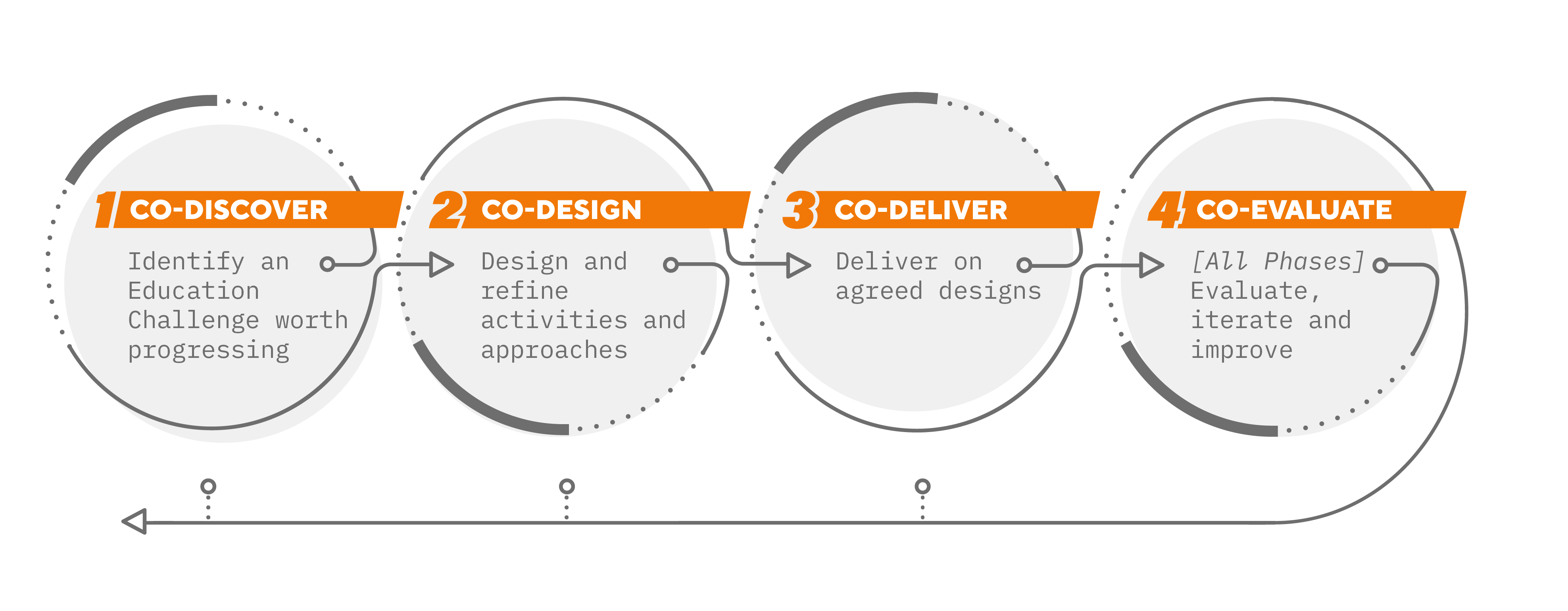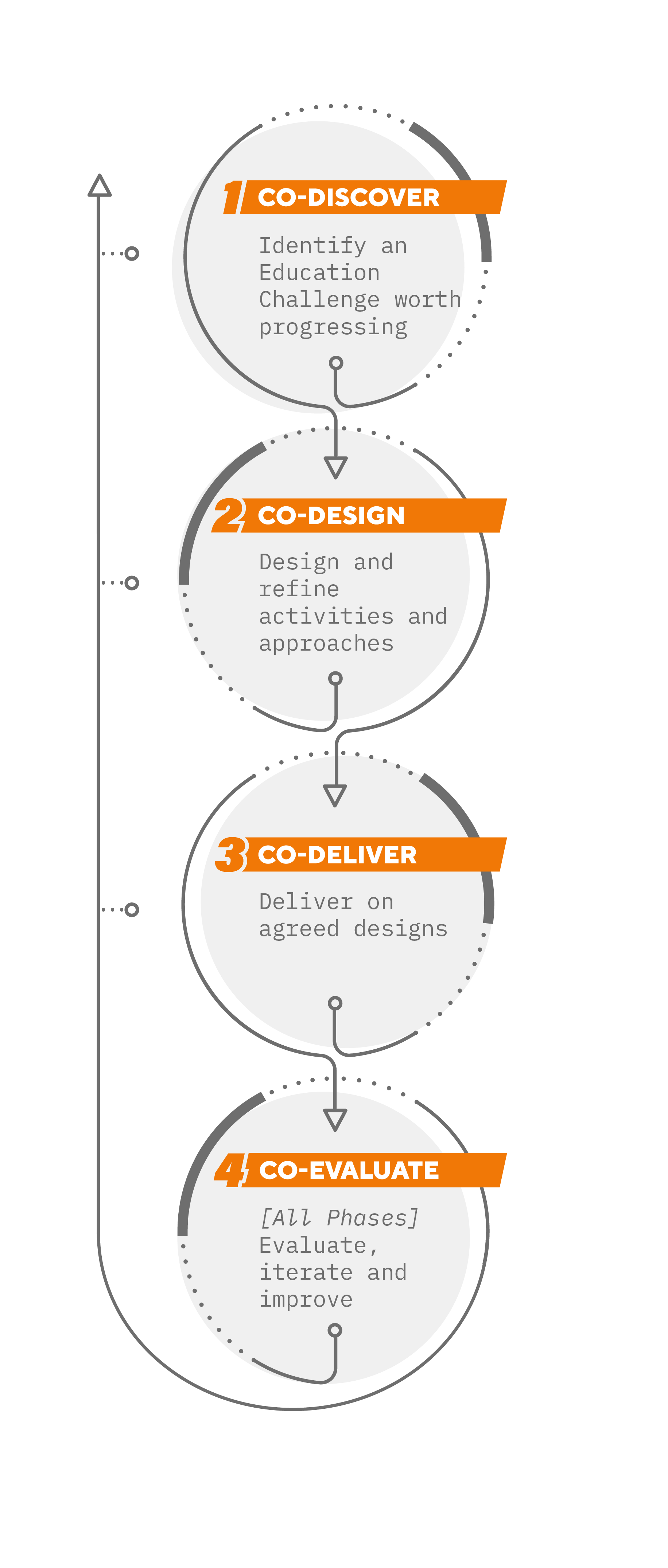Our approach
The Cognition Way is our in-house approach to support the effective co-discovery, co-design, co-delivery and co-evaluation of education improvement initiatives.
The Cognition Way is outlined in Getting to G.O.L.D by Cognition Education Group, Director of Education Dr Arran Hamilton and Visible Learning’s Laureate Prof. John Hattie (Melbourne University).
Read more about our methodology below.
Our approach
The Cognition Way is our in-house approach to support the effective co-discovery, co-design, co-delivery and co-evaluation of education improvement initiatives.
The Cognition Way is outlined in Getting to G.O.L.D by Cognition Education Group, Director of Education Dr Arran Hamilton and Visible Learning’s Laureate Prof. John Hattie (Melbourne University).
Read more about our methodology below.
The Cognition Way

Co-Discover
Schools and systems are often inundated with reform agendas that fizzle out because of initiative fatigue. Our Co-Discovery process is designed to help stakeholders identify the smallest number of mission-critical education challenges to focus all their efforts on. By vectoring in on crusades that everyone gets behind – initiatives are more likely to stay the course. The Discovery phase also includes what we call causal driver mapping. To solve big and hard education challenges we need to deeply understand the causes and the interaction between the moving parts.
Co-Design
The Co-Design phase is about identifying every possible way that stakeholders can block or reverse the causes of their biggest and hardest education challenges. It involves assessing each potential approach – looking at the global research on effectiveness, the cost and the complexity implementation, fit with local context and probability of impact. At the end of the Co-Design phase – stakeholders have one or more designed initiatives to implement.
Co-Deliver
The Co-Delivery phase is about bringing the designs to life. Our teams take a hands-on approach with governments, schools and even business/community stakeholders to ensure high quality delivery.
Co-Evaluate
Evaluation isn’t something we tack on at the end as an afterthought – it’s embedded in all phases of the Cognition Way. We validate our discovery insights; work with stakeholders to build multiple theories of improvement; collaboratively set short, medium and long-term improvement targets; and during delivery, we regularly measure to know our collective impact. Our engagement teams also work with stakeholders to interpret this data to identify how we can collectively iterate the design to significantly enhance the impact. And we repeat this process over and over.
The Cognition Way

Co-Discover
Schools and systems are often inundated with reform agendas that fizzle out because of initiative fatigue. Our Co-Discovery process is designed to help stakeholders identify the smallest number of mission-critical education challenges to focus all their efforts on. By vectoring in on crusades that everyone gets behind – initiatives are more likely to stay the course. The Discovery phase also includes what we call causal driver mapping. To solve big and hard education challenges we need to deeply understand the causes and the interaction between the moving parts.
Co-Design
The Co-Design phase is about identifying every possible way that stakeholders can block or reverse the causes of their biggest and hardest education challenges. It involves assessing each potential approach – looking at the global research on effectiveness, the cost and the complexity implementation, fit with local context and probability of impact. At the end of the Co-Design phase – stakeholders have one or more designed initiatives to implement.
Co-Deliver
The Co-Delivery phase is about bringing the designs to life. Our teams take a hands-on approach with governments, schools and even business/community stakeholders to ensure high quality delivery.
Co-Evaluate
Evaluation isn’t something we tack on at the end as an afterthought – it’s embedded in all phases of the Cognition Way. We validate our discovery insights; work with stakeholders to build multiple theories of improvement; collaboratively set short, medium and long-term improvement targets; and during delivery, we regularly measure to know our collective impact. Our engagement teams also work with stakeholders to interpret this data to identify how we can collectively iterate the design to significantly enhance the impact. And we repeat this process over and over.

